
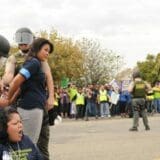
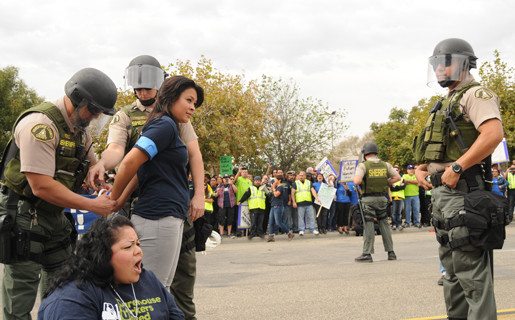 Six community members sat down Thursday in the middle of a major Riverside thoroughfare in front of the Walmart-contracted warehouse where workers are on strike.
Six community members sat down Thursday in the middle of a major Riverside thoroughfare in front of the Walmart-contracted warehouse where workers are on strike.
The supporters were arrested by the Riverside County Sheriff’s Department while chanting “Si se puede!” (“Yes, we can!”)
“If you were all here in support of warehouse workers alone it would be a noble cause, but this isn’t just for warehouse workers. Your efforts benefit all working people,” the Reverend Eugene Boutilier told the crowd shortly before he was arrested.
Workers—who do not have a recognized union—went on strike Wednesday, Nov. 14, to call for an end to retaliation and unfair labor practices.
“We are standing up for ourselves to create a safe work environment, but we are continuously punished for it,” said Javier Rodriguez, a warehouse worker. “We decided to strike again because we are tired of being singled out and denied work,
» Read more about: Arrests Made in Walmart-Contracted Warehouse Strike »


After a presentation by Climate Resolve on the local impacts of climate change last month, our host, Jonathan Parfrey, jokingly told us that anti-depressants would be passed out at the door. Gallows humor is understandable and – for me – always necessary when faced with hard truths. But dare I say that I also felt slightly more hopeful armed with information that would help us plan for the future?
This briefing, held at the Municipal Water Department, presented the first in a series of studies, sponsored by the City of L.A. and the U.S. Department of Energy, that focused on how climate change will impact L.A. County by mid-century. A lot of complex modeling went into the study, and – in this era of climate science denial – our presenter, Dr. Alex Hall, the study’s lead author, was at pains to explain it to us.

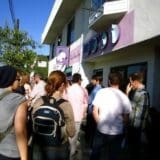
(On November 6, Long Beach became one of three cities in the country to pass minimum wage ballot measures, and the only one to guarantee paid sick leave to workers. This story is the second in a weeklong series of reflections on that important victory.)
Numbers never lie – that was our mantra at the Yes on Measure N headquarters. Canvassers for the hotel living wage law would come back talking about how a voter just wouldn’t give them the time of day, or how the 100-degree weather dragged on their hustle. And we would respond, “Well, numbers don’t lie.” This was just our way of saying, some days are good, some days are harder, but come the end of the campaign numbers will tell the true story of our hard work. And while I don’t want to oversimplify how we won,


 As the 2012 elections approached I started to feel very guilty about the state of the country that my generation, which was born shortly after World War II, was about to leave to my grandchildren and their peers. The conservative agenda was promising to starve government services of all kinds – public schools, food stamps, even the post office – with the aim of privatizing institutions that have served our nation well for decades. More laws limiting women’s reproductive rights seemed on the horizon, global warming was being dismissed as a liberal hoax, and the rights of labor — well, don’t even go there. I was afraid to wake up to a Republican sweep and a future of desperation and dislocation for millions of Americans. It felt like a huge generational and personal failure.
As the 2012 elections approached I started to feel very guilty about the state of the country that my generation, which was born shortly after World War II, was about to leave to my grandchildren and their peers. The conservative agenda was promising to starve government services of all kinds – public schools, food stamps, even the post office – with the aim of privatizing institutions that have served our nation well for decades. More laws limiting women’s reproductive rights seemed on the horizon, global warming was being dismissed as a liberal hoax, and the rights of labor — well, don’t even go there. I was afraid to wake up to a Republican sweep and a future of desperation and dislocation for millions of Americans. It felt like a huge generational and personal failure.
Instead, the November 6 election was a salve to my baby boomer soul. Having cut my political teeth in the civil rights movement of the 1960s,
» Read more about: Election 2012: The Revenge of the Baby Boomers »


Former L.A. Mayor Richard Riordan has been in the news lately, arguing that city leaders need to take drastic steps to make Los Angeles more business friendly and get the city functioning again. He has blamed public sector unions for every woe facing the region, including the current financial crisis and potholes on his street in Brentwood.
Mayor Riordan is not just crying in the wilderness. His threat to put a draconian pension-cutting initiative on the ballot played a major part in prompting the City Council last month to hastily adopt its own pension-cutting plan – a plan that almost certainly will be thrown out by the courts as a violation of existing collective bargaining agreements.
Riordan’s resurrection as a major political force begs a fundamental question: How successful was he at bringing business and jobs to L.A. and overseeing scarce public resources when he was running the city?
» Read more about: Richard Riordan’s Wrong Ideas Don't Deserve a Second Chance »
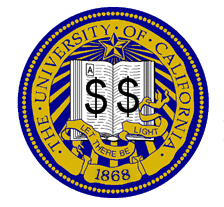

(The following post first appeared on Dog Park Media and is republished with permission. It describes events that occurred earlier today at a Regents meeting held at the University of California’s Mission Bay campus. A news update can be found here.)
About 500 students are currently blockading entrances to the University of California Board of Regents meeting at UC San Francisco this morning, where the Regents are scheduled to vote on a budget that presumes a 24 percent across-the-board increase on UC tuitions over four years. Picketing students have pledged to shut the meeting down.
According to Charlie Eaton, one of the organizers of the protest and co-author of a report released this week that charged the Regents with employing exotic financial instruments that doubled the UC system’s debt load over three and a half years, as of 8:45 a.m.
» Read more about: Students Protest UC Regents Meeting on Frisco Campus »
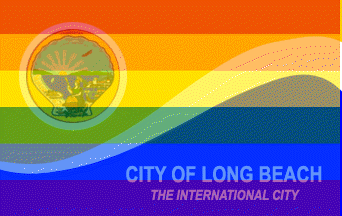

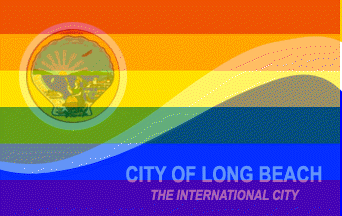 (On November 6, Long Beach became one of three cities in the country to pass minimum wage ballot measures, and the only one to guarantee paid sick leave to workers. This story is the first in a weeklong series of reflections on that important victory.)
(On November 6, Long Beach became one of three cities in the country to pass minimum wage ballot measures, and the only one to guarantee paid sick leave to workers. This story is the first in a weeklong series of reflections on that important victory.)
Since the times of Supervisor Harvey Milk in San Francisco, lesbian, gay, bisexual, transgender and queer (LGBTQ) communities have worked with labor organizations to improve the lives of people simply trying to stay afloat in the world. Through the Coors beer boycott of the 1970s, Milk not only laid the foundation for a solid partnership between seemingly disparate communities, he created something much larger: a space for individuals, organizers and union representatives to grow, expand and converse. He created the opportunity for bonds to form and for hearts and minds to open and understand how difficult it was in the 1970s — both for working people and LGBTQ people to be afforded respect,
» Read more about: Why LGBTQs Backed Long Beach's Hotel Worker Living Wage »


 The best measure of progress is often the desperation of its opponents. So if there were any doubt about the significance of Wednesday’s L.A. City Council vote to transform the city’s multi-family and commercial waste and recycling system, the shrillness of those in the minority offered final proof.
The best measure of progress is often the desperation of its opponents. So if there were any doubt about the significance of Wednesday’s L.A. City Council vote to transform the city’s multi-family and commercial waste and recycling system, the shrillness of those in the minority offered final proof.
“This is the day justice and democracy died,” declared one detractor. He was outdone, however, by a fellow naysayer, who, invoking the ghosts of Stalinist Russia, bellowed, “Vote straight communist – the life you save will be your own. That’s what’s happening here today.”
Aside from the minions of big business interests following in lockstep with the Chamber of Commerce, there were few traces of authoritarian rule at City Hall yesterday when the Council made its decision to jettison a system that has failed almost everybody. Indeed, democracy seemed alive and well, with an overflow crowd both participating in and witnessing an epic exercise in self-government.
» Read more about: L.A.'s Failed Waste System Sent to the Trash Bin of History »
 Millions of dollars in new tax revenue earmarked for the University of California system as part of the state’s recently passed Proposition 30 will instead be routed to major financial firms, because of bad bets made by a Wall Street-influenced UC Board of Regents.
Millions of dollars in new tax revenue earmarked for the University of California system as part of the state’s recently passed Proposition 30 will instead be routed to major financial firms, because of bad bets made by a Wall Street-influenced UC Board of Regents.
Over the last decade, tuition and fees for undergraduates in the UC system have tripled, adding enormous debt burdens to UC graduates and pushing lower-income students into the already overburdened state college and community college systems, or out of higher education altogether. Members of the UC Board of Regents, which governs the system and which approved the tuition hikes, have blamed the increases on the bad economy and on politicians.
However, according to a new report written by five doctoral students at UC Berkeley, in the years preceding the 2008 financial collapse, members of the Board of Regents themselves had overseen “a qualitative shift in the financial practices of the University of California” by employing the same kinds of exotic financial instruments that precipitated the meltdown on Wall Street — primarily,
» Read more about: Proposition 30 Millions Already Headed to Wall Street »
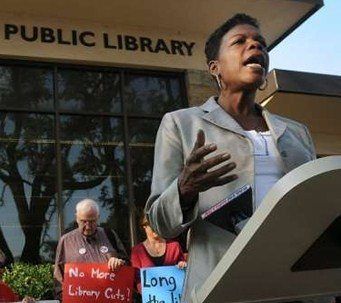
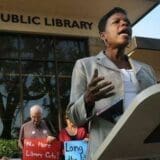
The would-be gravediggers of the New Deal and Obamacare have just begun their furious finger-pointing exercises as they try to figure out who to blame for the results of last week’s election. For progressive activists, however, November 6 was only a milestone, not the terminus, of a long journey to increase participatory democracy and build a more equitable America. Thursday, November 15, a number of them will gather at USC to lay out the nuts and bolts of their recently concluded campaigns, as well as to articulate their next moves.
Moderated by USC Political Science professor Ange-Marie Hancock, and sponsored by the university’s Program for Environmental and Regional Equity (PERE), “New Organizing for a New America” will explain what went right in 2012 and what strategies fell short, and how to make electoral organizing count for long-term base building. Among the topics to be discussed:
Participants include María Blanco,